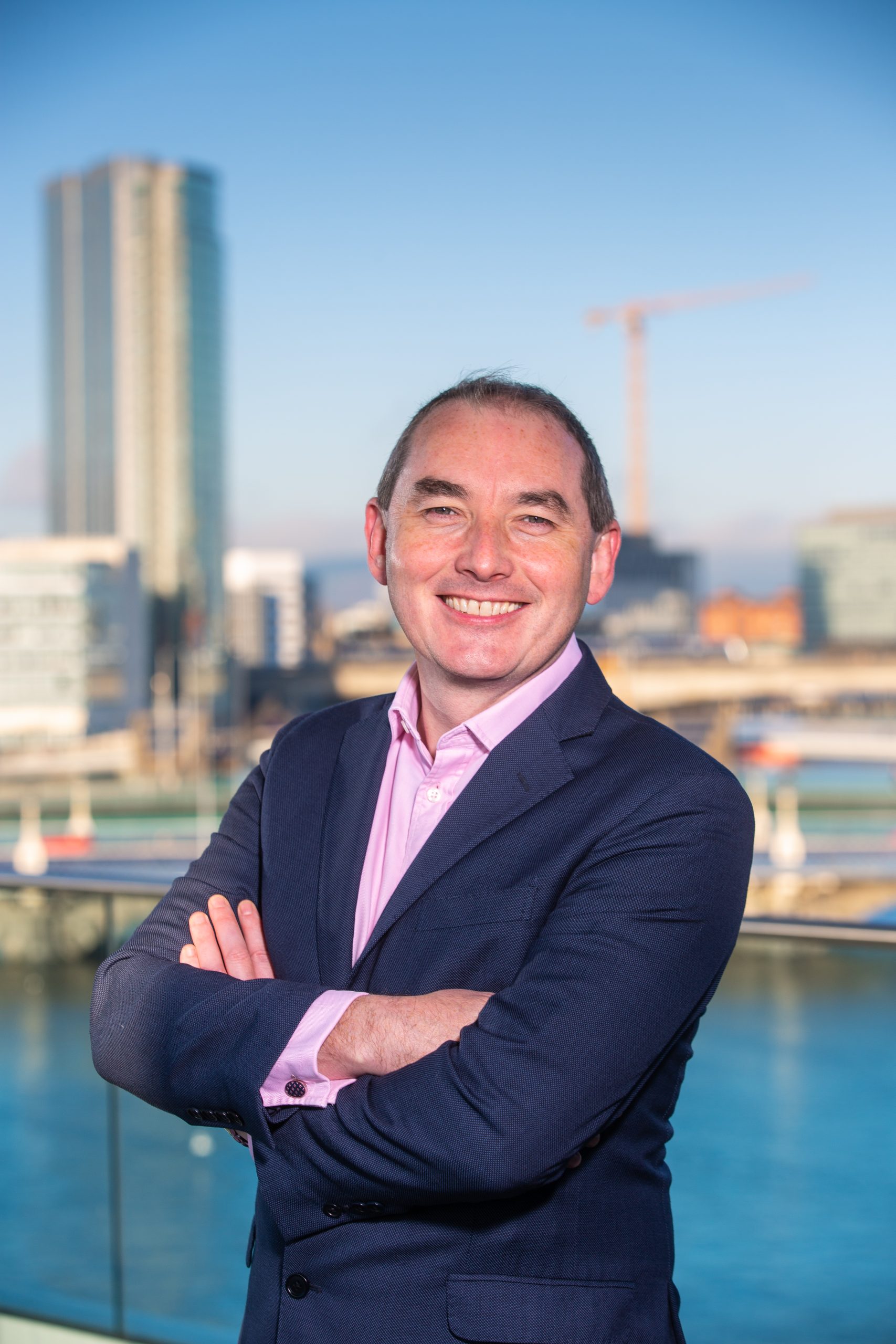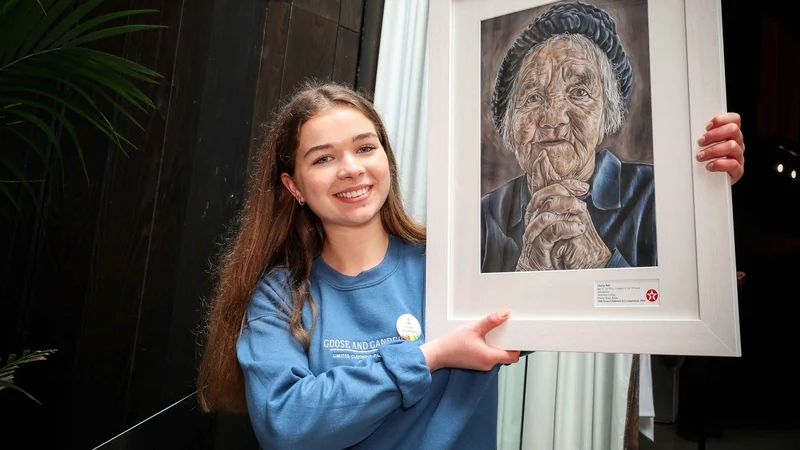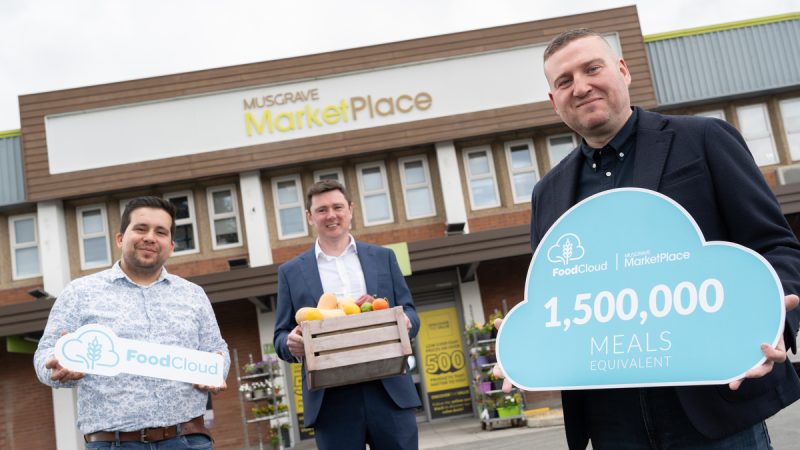Forecourts are fuelling bodies now, not just cars: Musgrave’s Michael McCormack

Once forecourts were all about fuelling cars – now they’re about fuelling bodies, according to Michael McCormack, managing director of Musgrave Wholesale Partners.
“When I started out, forecourts were what you called garages, they were where you got your puncture fixed,” he says. “What’s happened over many years is that shops have become prevalent on forecourts and they’ve developed into foodservice outlets.
“Now you’re meeting a whole different need – your shopping missions and your eating missions have converged. That’s a huge change over the last 20 to 30 years.”
Musgrave is keen to be at the forefront of the transformation of the forecourt industry.
“People aren’t no longer stopping just to fuel their cars. They are now stopping to fuel their bodies with breakfast, lunch, dinner and so on,” Mr McCormack says.
“One of Musgrave’s visions is to provide world-class food and beverage solutions and deliver a market-leading experience every day to the customers that we serve, across all of our businesses in retail, foodservice and wholesale. We are working closely with our forecourt partners and our retailers to ensure their offerings are world-class.”
Emergence of electric
The emergence of electric vehicles is set to change the raison d’etre of the forecourt even further, says Mr McCormack, who can boast a strong pedigree in the forecourt industry thanks to his work at Musgrave and his previous career with Statoil.
“As we look forward, with the emergence of electric vehicles, a lot of that charging will be done at home, as well as in work, so the job for these forecourts is to innovate in the way they feed people”.
Originally from Dublin and now living in the village of Holywood close to Belfast, Mr McCormack didn’t come from a family tradition of retail.
“I started out originally in finance and was seconded into a company called Statoil which is the state-owned Norwegian business that had a downstream business in Ireland. They had a distribution business for fuel but also they licensed a lot of retail outlets that they owned to licensees,” he says.
“I was seconded in to help them when they were incubating a company-owned operation, effectively starting up a kind of a retail business, trying to use the assets that they had and turn them into effective shops that they would run and operate. That’s how I ended up getting into retail.”
Shop concept
After he was appointed Head of Category and Concept Development, he found himself focusing on developing the shop concept across Statoil in Ireland, before moving to Oslo to become vice president for customer offer.
He returned to Ireland after a call from Musgrave – the role of Trading Director had just come up. He had first got to know the company in Ireland in his role as a customer of Musgrave with Statoil.
“I was hugely impressed with the people that I had engaged with in Musgrave, a sixth generation Irish-owned company,” he says.
He came in as Trading Director for the wholesale business, before taking over the wholesale business in Northern Ireland, later to become Managing Director.
His major projects included rolling out concept work developed in the Republic into Northern Ireland, including the next generation Centra, the Frank and Honest coffee concept and developing the Mace brand.
“We developed the Musgrave MarketPlace brand on the wholesale side, we developed the SuperValu, Mace and Centra brands on the retail side and then we bought Drinks Inc. which is an alcohol distribution business,” Mr McCormack says.
“Musgrave is a fantastic place to advance your career. I was Managing Director of Musgrave Northern Ireland for a number of years and then two years ago I became Managing Director of the wholesale and foodservice division in the Republic of Ireland. My main role as MD of the wholesale business is in the Republic but I have executive responsibility still for Northern Ireland, and I also have responsibility for the fledgling product export business.”
Wholesale development
The wholesale side of the business has developed substantially over the last couple of years. More than €30 million has been invested between the wholesaler supplier Musgrave MarketPlace and Daybreak, a convenience retailer brand, in recent years.
“In Musgrave MarketPlace we’ve reinvented the offer and also developed our foodservice credentials. We’re just about to launch a digital platform. Digital is key in the current climate so our focus is on becoming the Amazon for business to business,” Mr McCormack says.
The company currently has 269 Daybreak stores, after adding 40 new stores in the past two years alone, and a new design concept is being rolled out across the network.
“We invested in the Daybreak shop brand a number of years ago and developed a new concept that included sub-brands such as Munch & Co, Lickety Split, 9 Grams Coffee. In recent years we have focused on rolling that out and meeting the changing needs of the consumer. There has also been huge focus on developing the Centra and SuperValu brands. You’ve got to constantly move with the consumer so we’re always looking ahead.”
Pandemic priorities
When the pandemic hit, Musgrave was in a good place but the top priority was to look after customers and colleagues by investing in safety measures, Mr McCormack says.
“We’re very conscious of the position we have in the food supply chain in Ireland. It’s been a very difficult time for everyone but we recognise our responsibility to keep food on the table because we feed one in three people on the island of Ireland every day,” he says.
“It was really about putting our shoulders to the wheel and trying to keep people safe, but at the same time recognising that we had a job to do, to keep food on the table for people who were struggling due to Covid. So that was our primary focus, to keep people safe and keep the food supply chain operational.”
Food chain changes
And that food chain has changed as a result of the pandemic, not just with the shift to online shopping, Mr McCormack says.
“A lot more people were working from home which meant that where people ate changed – a shift from urban to rural for example, so we had to adapt as a business to take account of that,” he says.
“The hospitality sector was the most impacted by Covid and our job was to try and support them. For example, we opened our cash and carry businesses for longer opening hours to support our customers.”
Musgrave realised that demand from hospitality customers was likely to be more erratic with confusion over when restrictions would be put in place or lifted.
“We opened the cash and carry for longer to help them to cope with those demands and we continued to work with our customers to understand their current needs so that we could adapt to meet them.”
Behaviour change
Covid has also accelerated some behaviour changes – for example a lot of people who wouldn’t ordinarily have shopped online have taken to digital.
“A lot of hospitality customers are now engaged in delivery, they’re engaged in technology, they need different packaging to deliver product, and in some cases they need different ingredients to supply the products that are delivered,” Mr McCormack says.
“Then of course there are a lot of people not in workplaces, that means a lot more people buying locally now rather than buying lunch in a workplace. Hybrid working is here to stay and we all have to respond to that.”
The acceleration of the shift to online has driven Musgrave MarketPlace to spend the last 18 months working on a digital platform, due to launch shortly. It will be about delivering an exceptional online experience that gives customers everything they need to run their business.
Amazon for wholesale
“It’s about becoming the Amazon for wholesale, having real time stock information, accurate delivery lead times and having a platform that’s easy to use,” Mr McCormack says.
“Covid has been difficult for the hospitality sector. In the first instance, we’ve been looking after our customers, looking after our colleagues, looking after our partners and our retailers, but in the background we’ve been working on setting ourselves ambitious goals for the future across coffee, meat, fruit and veg.
Mr McCormack said Musgrave has just launched a business coffee brand called Brewdoo across a number of locations.
“It is ultimately about delivering a consistent cup of coffee. We have the maintenance programme behind it, we have a partnership with one of the biggest coffee businesses in the world.
“Similarly, we’ve brought on a lot of expertise in on-trade alcohol, and we’re building an on-trade alcohol business of scale, with a product range of close to 400 products covering alcohol and soft drinks and a superior range of wines.
“Another area of interest to us is centre of plate as we call it, which is generally meat and fruit and vegetables. We have a very strong meat business. We’ve brought in new capabilities and we’re going to extend the range of meat that we have, including Hereford as an example. We’re going to do a similar exercise with fruit and veg later in the year. Our premium business, La Rousse Foods continues to innovate in areas like patisserie, cheese, chocolate, wine. There’s lots of good stuff happening.”
Advice for the future
And his advice to forecourt owners navigating changing times?
“Forecourts need to continue to innovate, particularly in the foodservice space,” he says.
“A lot of forecourts are good at breakfast and lunch but not so good at the evening mission. There is huge opportunity to capture the evening market, as well as adding on additional services.
“The great thing about forecourts is that they have car parking, and car parking is brilliant for convenience. So whether you’re going to fuel up or you’re just going to top up or buy breakfast or buy lunch, the fact that you’ve got a big plot is hugely advantageous and that will continue to be the case.”








